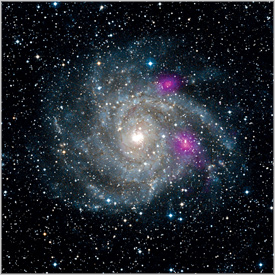Shedding Light on Dark Matter
For millennia we have looked up with awe and wonder at the night sky, attempting to make a connection between the celestial and terrestrial. During the past century, advances in technology have allowed for the introduction of radical ideas about the nature of the cosmos and our place in it.
In a fascinating evening program, theoretical astrophysicist Priya Natarajan traces the arc of the acceptance of two such ideas: that of dark matter and black holes. She also discusses her intriguing work in mapping dark matter and modeling supermassive black holes.
Other upcoming science programs

Telling Fact from Falsehood: Skills to Expose Pseudoscience
Evening Program
Tues., Apr. 25 at 6:45 PM
How do we know what we know? To help us think more critically and penetrate the web of faux facts and fake news, paleontologist Thomas Holtz introduces the toolkit assembled by Carl Sagan, the great astronomer and peerless detector of scientific baloney.
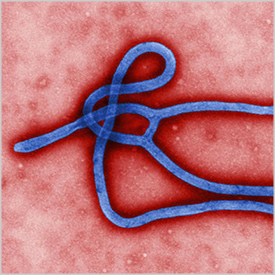
Epidemics Past and Present: Causes, Responses, and the Human Impact
Evening Program
Wed., May 17 at 6:45 PM
David Morens of the National Institute of Allergy and Infectious Diseases at NIH offers a survey of the most significant epidemics in human history, as well as an examination of global efforts to eradicate their contemporary counterparts.
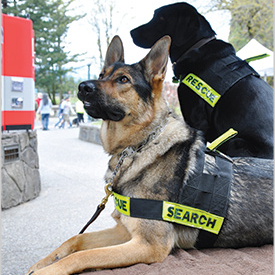
Working Dogs: Saviors in the Post-9/11 World
Weekend Program
Sun., Jun. 4 at 1:30 PM
The Penn Vet Working Dog Center in Philadelphia transforms qualified pups into highly trained bomb-sniffing, drug-interdiction, search-and-rescue, and cancer-detecting professionals. Learn about the puppies’ rigorous training, and then watch as several of the center’s furry graduates demonstrate their special skills.
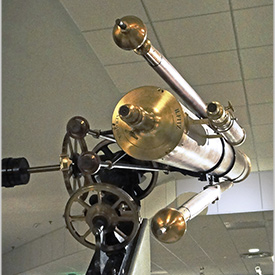
American Eclipse: Scientific Rivals in the 19th-Century West
Evening Program with Book Signing
Tues., Jun. 6 at 6:45 PM
In the scorching summer of 1878, scientists raced to Wyoming and Colorado to observe a rare total solar eclipse. David Baron, author of the new book American Eclipse, shares the tale of the event that helped inspire the nation’s rise as a scientific superpower.

Captain America's Super-Soldier Serum
Evening Program
Fri., Jun. 16 at 6:45 PM
In the original Marvel Comics story, puny Steve Rodgers morphed into a shield-slinging avenger thanks to Professor Erskine’s mysterious chemical compound and a dose of “vita rays.” Eric Spana of Duke University explains how the mighty powers of biotechnology might make such a transformation possible today.
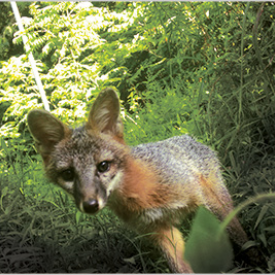
Mammals on Camera: A New Approach to Wildlife Observation
Evening Program
Tues., Jun. 20 at 6:45 PM
Everyone loves the National Zoo’s PandaCams, but what if researchers had the same chance to observe and gather data on animals in the wild? Wildlife ecologist Bill McShea discusses why camera-trap images are the virtual museum of the future.

You have received this email based on your subscription to this topic or because this topic matches your ticket purchases with the Smithsonian Associates. To ensure delivery to your inbox (not junk folder), please add CustomerService@SmithsonianAssociates.org to your address book or safe list.
We want to make sure that you receive timely information about special Smithsonian offers and programs that are tailored to your interests. If you're not happy with the emails you've been receiving, feel free to update your subscriptions anytime. Manage your preferences here>>

1100 Jefferson Drive SW, Washington, D.C. 20560
202-633-3030 | CustomerService@SmithsonianAssociates.org

